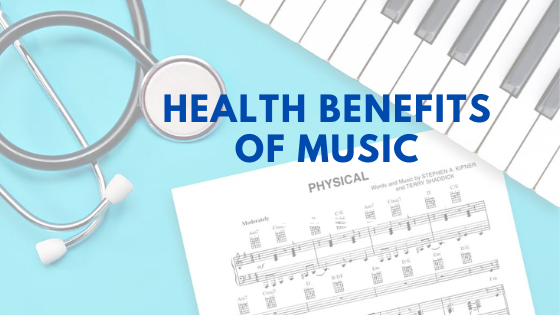
Isn’t it amazing that, while listening to a specific song, you tend to feel a special memory of the past, or it makes you feel relaxed or quiet or energized? People are born capable of knowing the difference between music and noise. Different pathways to process different music parts are present in our brain that can process pitch, melody, rhythm, and tempo. There are several benefits of music.
Various studies have reported that the brain releases a chemical called dopamine that has positive effects on mood when listening to music to your liking. Harmony will make us experience powerful feelings like happiness, sorrow, or fearsome would believe it can transform us. It has the power to improve one’s overall well-being. We have mentioned down below some of the other benefits of music. Here we go:
Research has shown that repeated rhythm and melody elements help our brains shape patterns that enhance memory. Listening to music in a study of stroke survivors enabled them to experience more verbal memory, less confusion, and more focused attention.
Those who listened to music before, after, or after surgery reported reduced discomfort and greater general pleasure than patients who did not listen to music as part of their treatment in surveys of patients healing from surgery. Music helps to ease the pain.
Music therapy has also used to help enhance interaction, relaxation, and processing of emotions such as anxiety, depression, and frustration in patients with severe disease and end-of-life care.
Music will get you started — and the effects of dancing are well known. Scientists also know that listening to music, depending on the intensity and tempo of the music, can shift your breath rate, heart rate, and blood pressure.
Researchers at Shanghai University reported in 2015 that calming music helped to reduce fatigue and preserve muscle stamina while people were engaging in tedious work. Music therapy sessions have decreased exhaustion in individuals undergoing cancer care, and increased the exhaustion level among those participating in the rigorous neuromuscular exercise, moving us to the next significant advantage.
Research shows that music will improve cardiovascular fitness, mental and physical relaxation, and productivity overall. Enthusiasts of fitness have long recognized that music enhances their physical efficiency. Literature analysis for 2020 shows that engaging with music boosts your mood makes your body move more effectively and decreases your feeling of exertion. Working with music also results in lengthier workouts.
At Johns, Hopkins physicians consider listening to music to activate the brain. Scientists know the brain is interested in listening to music; they can see the active regions light up in MRI scans. Researchers now realize that only the opportunity to listen to music will make you want more.
There’s plenty of research that listening to music may help settle you down in circumstances you may feel anxious about. Research has found that recovery patients become more confident following a stroke after they’ve listened to music for an hour. Related findings show that music combined with the sounds of nature makes people feel less nervous. Following music therapy often, individuals experiencing severe disease have less fear.
Research of individuals with autism spectrum disorder who have undergone music therapy has demonstrated progress in emotional interactions, cognitive capabilities, and attention abilities.
Live music and lullabies can influence vital signs, enhance feeding behaviors and practices of sucking in premature infants, and may increase extended periods of quiet-alert conditions. Music works well for premature babies.
Music exerts a tremendous impact on people. It can enhance performance, develop endurance, lighten the mood, strengthen pain tolerance, and help you to work out more efficiently. It surely has a significant impact on one’s physical, emotional, and mental health. We hope you will start listening to good music to avail of these benefits of Music.